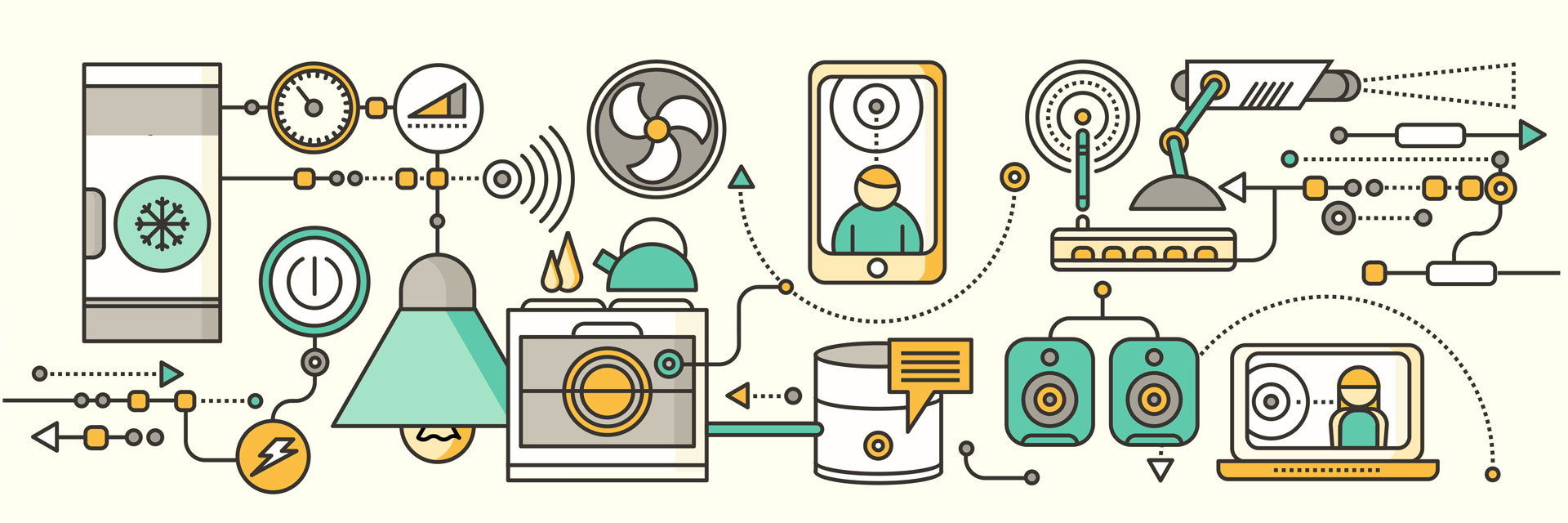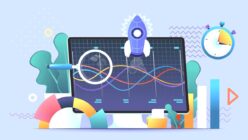The intersection between man and technology today is not so demarcated. Technology and other digital channels have entwined with the way we work and live in many more ways than we can fathom. One such technology that has evolved through the years and has become embedded in our day to day life is the Internet of Things. The buzz around IoT has been escalating with years.
To define it simply, IoT basically translates to connecting devices to each other and to the internet with just an on/off switch.
It includes everything from the coffee machines, cellphones, headphones, wearable devices to components of machines such as the engine of an airplane.
Using unique IP addresses to connect to things is a given for many years, but the commoditization of sensors, processors and technologies that further enhance IoT capabilities are making it more possible to move beyond just being connected to an even more intelligent Internet of Things.

As per the report by IDC, worldwide spending on IoT is estimated to grow at a 17% annual rate, becoming nearly $1.3 trillion in 2019.
The latest study by Capgemini, Unlocking the Business Value of IoT in Operations, explored the reasons why some enterprises are migrating to large scale IoT adoption while others are stuck at the pilot stage.
One of the key takeaways from this study was that IoT adoption significantly increased the business operation.
For instance, the study found that Harley Davidson – a globally based motorcycle manufacturer, was able to reap an overall profit of 3% to 4% by moving productions to a fully enabled IoT plant.
This illustrates the significance of IoT today. As IoT is becoming more and more relevant, professionals can benefit from getting an IoT certification or suitable IoT training to get their IoT journey started.
Make IoT Smarter: Convergence with Other Technologies
The convergence of IoT with other distinct but correlated technologies like AI, Blockchain and other such technologies is bound to make IoT more productive and smarter to work with. Now let us take a brief look into the role played by AI &Blockchain in IoT.
AI in IoT: Unlocking the Potential
Artificial Intelligence, the current buzzword of IT plays a significant role in unlocking the potential of IoT. This is reflected in the increasing investments and purchase of startups that integrate IoT and AI. Today, some of the popular vendors of IoT platforms also deliver integrated AI services including analytics based on machine learning.
One of the most important values AI can provide is its ability to rapidly derive data insights. With Machine Learning (ML), an AI technology, it is possible to automate the identification of data patterns and anomalies that are provided by smart sensors and other devices. These are information on air quality, temperature, humidity, sound, and vibration.

When compared to business intelligence tools that are commonly employed for this process, ML is able to make more accurate and rapid operational predictions. AI technologies like computer vision and speech recognition can help to extract information from data that otherwise require human review.
Artificial Intelligence(AI), when integrated with IoT, can enable organizations to increase their organizational efficiency, improve their risk management, give insights about new products & services as well as avoid unplanned downtime.
For instance, in sectors like industrial manufacturing and oil or gas sectors, unplanned downtime due to equipment breakdown could mean a huge money loss. However, this can be brought down with the help of predictive maintenance, which uses analytics to foretell the possibility of equipment failure which will help to plan the orderly maintenance system.
IoT powered by AI can bring a lot of improvement in the area of operational efficiency. With ML it will be possible to forecast operating conditions as well as determine the criterion to be adjusted in order to ensure ideal outcomes through constant data crunching to identify patterns that are not visible to the human eye.
IoT with AI has also the consequence of aiding in new and enhanced products and services. With the rapid advancements in Natural Language Processing, AI-controlled robots and drones spell huge potential in examination and monitoring.
Blockchain in IoT: What Can it Bring
Blockchain and IoT are very closely connected. Blockchain which is a digital ledger is able to record details of all the transactions that take place between IoT machines. All IoT data especially when it comes to supply chains or other related areas where information move between owners requires the storage of this data in a kind of immutable record; this is where Blockchain comes into play.
Another role of Blockchain in IoT relates to security. Most IoT interactions happen between robots, with very little oversight.
With Blockchain technology, security can be enhanced as only with the encryption keys data can be edited or amended. Moreover, copies of the record are distributed amongst thousands of physical locations. This means that no single party has centralized control to manipulate it.
Conclusion
Soon, it will be very hard to see an IoT application that does not employ any of the emerging technologies like AI or Blockchain.
According to the findings made by the International Data Corp, by 2019 AI will be supporting all IoT implementations and without it, data from deployments will yield only limited value.
This again drives home the fact that if anyone is thinking of adopting IoT based solutions, they should probably integrate it with other technologies as well.






Leave a Reply